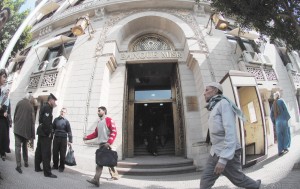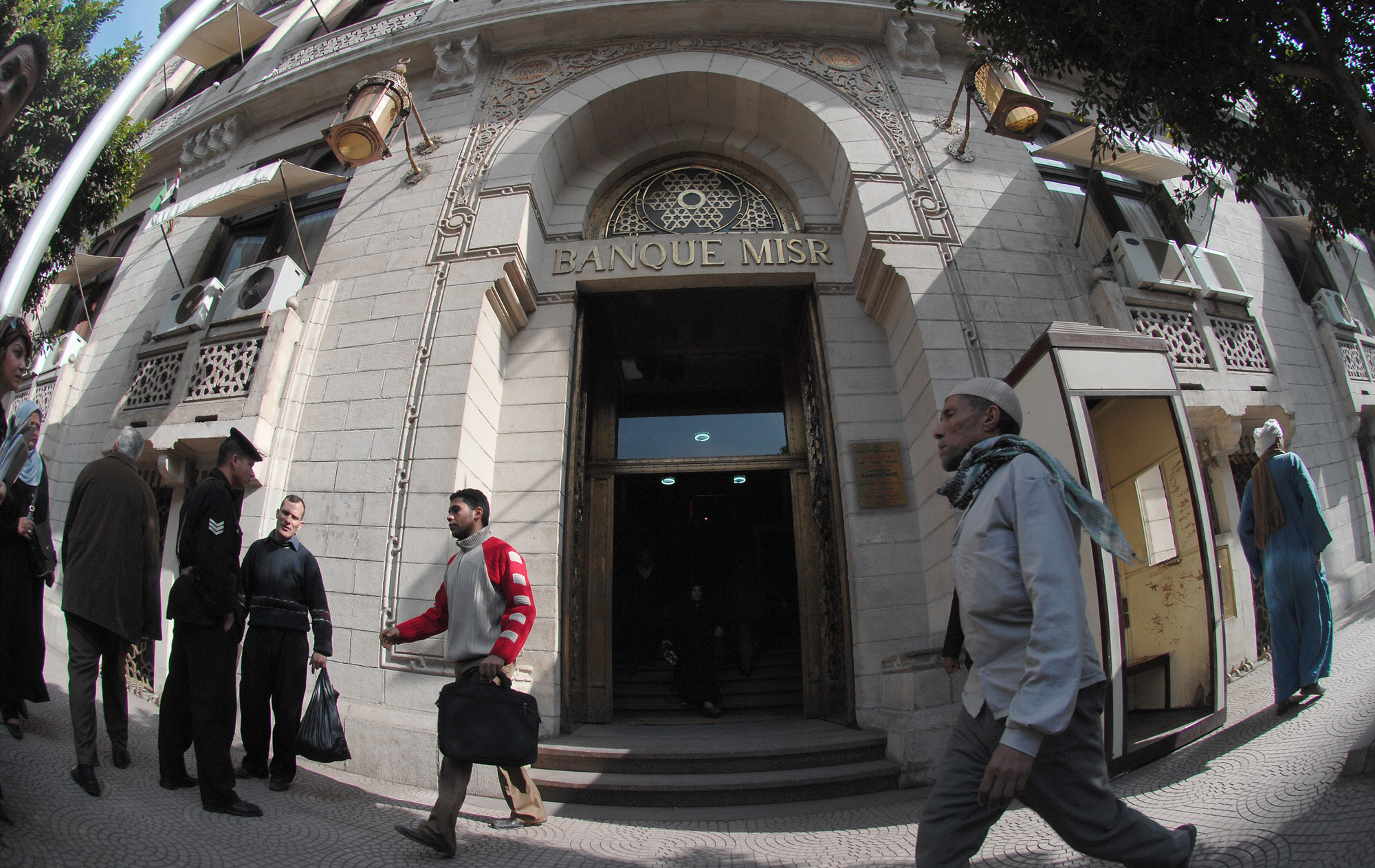
(DNE Photo)
In late 2007, former Governor of the Central Bank of Egypt (CBE) Farouk Al-Okda met the bank heads to establish e-payments and e-collection of government taxes and customs centres. During the meeting, the E- Finance Company was introduced as the centre’s operator.
The government signed an agreement with the E-Finance Company, in 2010, to develop customs and tax payments in Egyptian banks via direct cash payments transferring it to the e-payment system.
This service allows customers the flexibility of payment from anywhere and safety of payments owed to the government.
An important advantage of payments collections is the Collection Monitoring System, as E-Finance provides visibility to the funds collection and deposit process at various authorities and different governmental collection points. In addition, there is the immediate release of customs goods once payment has been received.
Since this agreement, banks competed to contract with E-Finance to benefit from the provided services to ease payment systems on citizens and corporations and to maximise their profits.
Since these services started, taxes collected through the e-payment system provided by E-Finance helped increase Egyptian growth, according to E-Finance’s Chairman of the Board, Ibrahim Sarhan.
Since 2012, the Ministry of Finance, in cooperation with the CBE and E-Finance adopted a new customs payment system for senior customs agents’ imports electronically from their offices.
Tax system e-payments currently work with nearly 33 banks, as well as Egypt Post, through 3,439 bank branches and 1,405 post offices.
This system is based on an electronic network linking customs ports with various Egyptian ports through more than 1,400 banks’ branch subsidiary’s 24 commercial bank in Egypt.
Banks entered the race to provide the collection of taxes and customs payments services in addition to the three public banks, the National bank of Egypt (NBE), BanqueMisr, and Banque du Caire.
The importance of e-collection for bills and taxes came from the Presidential Decree Law 201/2014, which binds money companies and public legal persons companies to pay income taxes by one of the e-payment ways.
Crédit Agricole Egypt developed ways to pay customs and taxes through the electronic payment service, allowing customers the flexibility and safety of payments to the government from anywhere.
CIB provides e-payment services for the customs and tax through its branches network. The bank largely provides CPS, which includes Electronic Customs, Customs Payment Account Service and Electronic tax. Since the beginning of customs e-collection, CIB’s customs rate exceeded 45% of the total electronic customs.
For the fifth year in a row, Banque du Caire continues to provide an e-payment service tax and customs through more than 95% of its branches, or up to 228 branches, across.
Chairman of the Board and Chief Executive Officer of Banque du Caire Mounir Al-Zahid said that tax e-payment services facilitated over 4,600 companies and individuals. This has helped them to pay more than EGP 355m in taxes since the beginning of 2013 until the end of April 2014.
The bank was able to help 3,308 corporate clients and individuals to pay customs during the period from January until the end of April 2014, which amounted to about EGP 118m.
The Principal Bank for Development and Agricultural Credit (PBDAC) offers payment of taxes and customs through its branches spread over the country for its clients and non-clients.
Faisal Islamic Bank (FIB) received approval from the CBE to raise mobile product banking in 2014. Mobile Banking services provided by FIB enable customers to conduct many banking operations, notably bills payment, and money transfer service.
Banque Misr received the “Best-advanced Bank in the Tax E-Collection System” Award for 2014. The Egyptian Tax Authority (ETA) and E-Finance Company presented the award to Banque Misr during the “E-collection to Support National Economy” Conference organised by ETA on 20 January. The bank provides e-payment service through a network of 294 branches across Egypt.
ETA awarded NBE first place in government tax e-collection paid by both individuals, companies and institutions out of the 33 banks involved in the provision of that service. The bank provides e-collection of taxes in 1,920 branches.
E-Finance received EGP 5bn tax profits between July 2009 and the end of 2014, according to Sarhan.
E-Finance announced in “E-collection to Support National Economy” Conference that the company collected 80% of taxes proceeds in addition to 75% customs proceeds.




